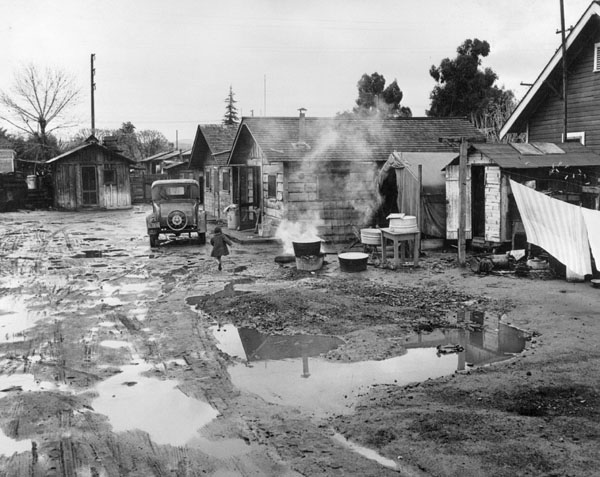Permanent Transients: Representations of Internal Migration and Community in U.S. Women’s Writing

When Hurricane Katrina dispersed 500,000 people from the Gulf Coast region of the United States, the identity of these people — whether they were migrants, refugees, or a part of a new American diaspora — came into question. The country felt uncertain as to how to recognize a mass of moving people as though internal migrations had never occurred before historically, though in fact they had.
Visiting Fellow Prof. Abigail Manzella’s book project analyzes how finding a sense of home through the histories of space and movement is inflected by race, gender, and locality in select pieces of literature. This study includes perspectives on an African American woman’s journey south toward progressive self-development in opposition to the Great Migration in Zora Neale Hurston’s Their Eyes Were Watching God, Latina/o migrants’ blending of myths in Helena María Viramontes’s Under the Feet of Jesus, a dominantly white migrant society fleeing the Dust Bowl to create a new racialized sense of what community means in Sanora Babb’s Whose Names Are Unknown, and Julie Otsuka’s depiction of the effects of internment on Asian Americans during World War II in When the Emperor Was Divine. Manzella will show the importance of understanding the aesthetics of human movement and their textual reconfigurations so we can all better interpret the signs of internal migrations we experience today.
Photo credit: Dorothea Lange, "Cheap Auto Camp Housing for Citrus Workers," Tulare County, California, February 1940, National Archives and Records Administration, Records of the Bureau of Agricultural Economics